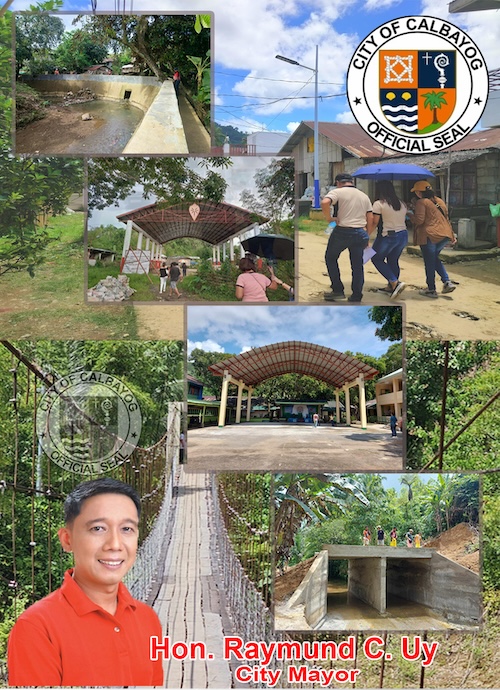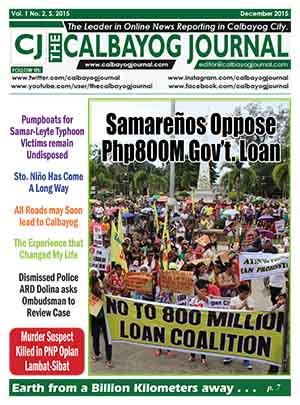
(First published on 4 June 2020, Index number: ASA 35/2476/2020)
https://www.amnesty.org/en/documents/asa35/2476/2020/en/?fbclid=IwAR1PreJJrS0GtQBK2-VYc_HaiuwpzpWdKdYN_XHlIcLRwqRCHSbhJ67XXv8
LAW Amnesty International calls on the Philippine government to halt plans to pass an anti-terror bill into law that contains dangerous provisions and risks further undermining human rights in the country. The bill is overly broad and can be used to stifle peaceful dissent or target civil society and other legitimate groups amid increasing attacks on human rights defenders and critics of the Duterte administration, as the country continues to battle the COVID-19 pandemic. It is essential that problematic provisions are removed from the legislation before it is finalised.
On 3 June 2020, the House of Representatives approved House Bill (HB) 6875 or the “Anti-Terrorism Act of 2020” on final reading, rejecting all attempts to introduce amendments to the bill. Days before, two committees from the Lower House voted on 29 May 2020 to adopt the Senate version of a draft legislation replacing the country’s existing anti-terror law – the Human Security Act of 2007. The Senate had already approved its version of the bill in February, and all that remains is for the bill to be signed off by the President, which he marked as urgent on 1 June 2020.
In the context of ‘countering terrorism’, states must ensure the respect of international human rights and humanitarian law. Currently, the anti-terror bill is in violation of international standards on human rights and counter-terrorism. It risks granting further excessive powers to the Philippine executive, which has presided over serious human rights violations in the country under President Duterte. The Duterte administration continues to pursue its “war on drugs” despite the tens of thousands already killed by the police and by armed individuals. Attacks against human rights defenders and critics of the government – including activists, journalists, lawyers, church leaders, trade union leaders, and individuals and groups affiliated with the political left – have increased under a climate of impunity; they have repeatedly been ‘red-tagged’ and accused of being “terrorists” because of their perceived links to communist groups.
The new law includes a worryingly overbroad definition of terrorism. This leaves the proposed law susceptible to arbitrary and discriminatory enforcement – possibly against human rights defenders, political activists, religious or ethnic communities, or other disfavored groups.
If approved, the new law will grant Philippine police and military personnel the power to detain suspects without a warrant or charge for up to 24 days for investigation (an initial period of 14 days and a 10-day extension). The pre-charge period of 24 days greatly exceeds the norm under international standards for being promptly informed of criminal charges. Prolonged detention without charge, together with warrantless arrests, increases the risk of torture and inhuman or degrading treatment, and will also violate the right to liberty under international law. The bill also eliminates an existing provision under the current law ordering the payment of PhP 500,000 (USD 9,970) for each day that a person who is wrongly accused of terrorism spends in jail.
Owing to its overbroad definition of terrorism, some of the bill’s provisions can be used to target human rights and civil society groups and individual advocates. For example, while the bill includes a clause making clear that “advocacy, protest, stoppage of work, industrial or mass action, and other similar exercises of civil and political rights” are not considered terrorism, its definition of terrorism as certain specified actions that “create a serious risk to public safety” is vague and thus prone to broad interpretations and abuse. The bill also includes “expert advice or assistance” within its definition of material support to terrorism – phrasing that reflects problematic US law provisions – raising the possibility that civil society groups could be targeted even for benign communications with groups deemed terrorist under the law.
The bill further grants problematic powers to security forces to conduct surveillance. The authorities need to satisfy a judge that there is probable cause that one of the crimes contained within the bill has been, or will be, committed in order to intercept communication. However, the offences in the act are overbroad, and there is no requirement that the interception is necessary. This greatly increases the risk that individuals will have their privacy violated.
Although the bill is fundamentally flawed, it does include a few constructive provisions. The law specifically includes specific provisions barring torture and coercion, requiring the keeping of logbooks, and requiring detainees to be informed of their rights. The law also includes a specific ban on extraordinary rendition.
Amnesty International calls on the government to immediately amend the anti-terror bill to ensure it is consistent with international human rights law and standards, with particular attention to ensuring that the bill includes an appropriately narrow definition of terrorism, limits detention without charge, respects the rights to basic liberties, and provides sufficient safeguards against abuse and misuse by the police and other security forces at the expense of human rights protections.
BACKGROUND:
On 3 June 2020, members of the House of Representatives approved on final reading House Bill (HB) 6875 or the “Anti-Terrorism Act of 2020”, which seeks to repeal the Human Security Act of 2007. As it is an adoption of an earlier version approved by the Senate on 26 February 2020, the bill is now just a step away from being signed into law by the President. President Duterte has certified the bill as urgent and called on Congress to expedite the process.
HB 6875 defines terrorism as:
? Engaging in acts intended to cause death or serious bodily injury to any person or endangers a person’s life;
? Engaging in acts intended to cause extensive damage or destruction to a government or public facility, public place, or private property;
? Engaging in acts intended to cause extensive interference with, damage, or destruction to critical infrastructure;
? Developing, manufacturing, possessing, acquiring, transporting, supplying, or using weapons; and
? Releasing dangerous substances or causing fire, floods or explosions when the purpose is to intimidate the general public, create an atmosphere to spread a message of fear, provoke or influence by intimidation the government or any international organization, seriously destabilize or destroy the fundamental political, economic, or social structures in the country, or create a public emergency or seriously undermine public safety.
Under the proposed law, persons who propose, incite, conspire, and participate in the planning, training, and facilitation of a terrorist attack, as well as those who provide support to terrorists or recruit members of a terrorist organisation, could face life imprisonment without parole. The bill also punishes the following acts with 12 years’ imprisonment:
-Threatening to commit terrorism
-Inciting others or proposing to commit terrorism
-Voluntarily and knowingly joining any terrorist group
-Acting as an accessory in the commission of terrorism
Under the bill, suspects can be detained without a judicial warrant of arrest for 14 days, extendable by 10 more days, and placed under surveillance for 60 days, extendable by up to 30 days, by the police or military.(CJ/AI)
https://www.amnesty.org/en/documents/asa35/2476/2020/en/?fbclid=IwAR1PreJJrS0GtQBK2-VYc_HaiuwpzpWdKdYN_XHlIcLRwqRCHSbhJ67XXv8
LAW Amnesty International calls on the Philippine government to halt plans to pass an anti-terror bill into law that contains dangerous provisions and risks further undermining human rights in the country. The bill is overly broad and can be used to stifle peaceful dissent or target civil society and other legitimate groups amid increasing attacks on human rights defenders and critics of the Duterte administration, as the country continues to battle the COVID-19 pandemic. It is essential that problematic provisions are removed from the legislation before it is finalised.
On 3 June 2020, the House of Representatives approved House Bill (HB) 6875 or the “Anti-Terrorism Act of 2020” on final reading, rejecting all attempts to introduce amendments to the bill. Days before, two committees from the Lower House voted on 29 May 2020 to adopt the Senate version of a draft legislation replacing the country’s existing anti-terror law – the Human Security Act of 2007. The Senate had already approved its version of the bill in February, and all that remains is for the bill to be signed off by the President, which he marked as urgent on 1 June 2020.
In the context of ‘countering terrorism’, states must ensure the respect of international human rights and humanitarian law. Currently, the anti-terror bill is in violation of international standards on human rights and counter-terrorism. It risks granting further excessive powers to the Philippine executive, which has presided over serious human rights violations in the country under President Duterte. The Duterte administration continues to pursue its “war on drugs” despite the tens of thousands already killed by the police and by armed individuals. Attacks against human rights defenders and critics of the government – including activists, journalists, lawyers, church leaders, trade union leaders, and individuals and groups affiliated with the political left – have increased under a climate of impunity; they have repeatedly been ‘red-tagged’ and accused of being “terrorists” because of their perceived links to communist groups.
The new law includes a worryingly overbroad definition of terrorism. This leaves the proposed law susceptible to arbitrary and discriminatory enforcement – possibly against human rights defenders, political activists, religious or ethnic communities, or other disfavored groups.
If approved, the new law will grant Philippine police and military personnel the power to detain suspects without a warrant or charge for up to 24 days for investigation (an initial period of 14 days and a 10-day extension). The pre-charge period of 24 days greatly exceeds the norm under international standards for being promptly informed of criminal charges. Prolonged detention without charge, together with warrantless arrests, increases the risk of torture and inhuman or degrading treatment, and will also violate the right to liberty under international law. The bill also eliminates an existing provision under the current law ordering the payment of PhP 500,000 (USD 9,970) for each day that a person who is wrongly accused of terrorism spends in jail.
Owing to its overbroad definition of terrorism, some of the bill’s provisions can be used to target human rights and civil society groups and individual advocates. For example, while the bill includes a clause making clear that “advocacy, protest, stoppage of work, industrial or mass action, and other similar exercises of civil and political rights” are not considered terrorism, its definition of terrorism as certain specified actions that “create a serious risk to public safety” is vague and thus prone to broad interpretations and abuse. The bill also includes “expert advice or assistance” within its definition of material support to terrorism – phrasing that reflects problematic US law provisions – raising the possibility that civil society groups could be targeted even for benign communications with groups deemed terrorist under the law.
The bill further grants problematic powers to security forces to conduct surveillance. The authorities need to satisfy a judge that there is probable cause that one of the crimes contained within the bill has been, or will be, committed in order to intercept communication. However, the offences in the act are overbroad, and there is no requirement that the interception is necessary. This greatly increases the risk that individuals will have their privacy violated.
Although the bill is fundamentally flawed, it does include a few constructive provisions. The law specifically includes specific provisions barring torture and coercion, requiring the keeping of logbooks, and requiring detainees to be informed of their rights. The law also includes a specific ban on extraordinary rendition.
Amnesty International calls on the government to immediately amend the anti-terror bill to ensure it is consistent with international human rights law and standards, with particular attention to ensuring that the bill includes an appropriately narrow definition of terrorism, limits detention without charge, respects the rights to basic liberties, and provides sufficient safeguards against abuse and misuse by the police and other security forces at the expense of human rights protections.
BACKGROUND:
On 3 June 2020, members of the House of Representatives approved on final reading House Bill (HB) 6875 or the “Anti-Terrorism Act of 2020”, which seeks to repeal the Human Security Act of 2007. As it is an adoption of an earlier version approved by the Senate on 26 February 2020, the bill is now just a step away from being signed into law by the President. President Duterte has certified the bill as urgent and called on Congress to expedite the process.
HB 6875 defines terrorism as:
? Engaging in acts intended to cause death or serious bodily injury to any person or endangers a person’s life;
? Engaging in acts intended to cause extensive damage or destruction to a government or public facility, public place, or private property;
? Engaging in acts intended to cause extensive interference with, damage, or destruction to critical infrastructure;
? Developing, manufacturing, possessing, acquiring, transporting, supplying, or using weapons; and
? Releasing dangerous substances or causing fire, floods or explosions when the purpose is to intimidate the general public, create an atmosphere to spread a message of fear, provoke or influence by intimidation the government or any international organization, seriously destabilize or destroy the fundamental political, economic, or social structures in the country, or create a public emergency or seriously undermine public safety.
Under the proposed law, persons who propose, incite, conspire, and participate in the planning, training, and facilitation of a terrorist attack, as well as those who provide support to terrorists or recruit members of a terrorist organisation, could face life imprisonment without parole. The bill also punishes the following acts with 12 years’ imprisonment:
-Threatening to commit terrorism
-Inciting others or proposing to commit terrorism
-Voluntarily and knowingly joining any terrorist group
-Acting as an accessory in the commission of terrorism
Under the bill, suspects can be detained without a judicial warrant of arrest for 14 days, extendable by 10 more days, and placed under surveillance for 60 days, extendable by up to 30 days, by the police or military.(CJ/AI)





















